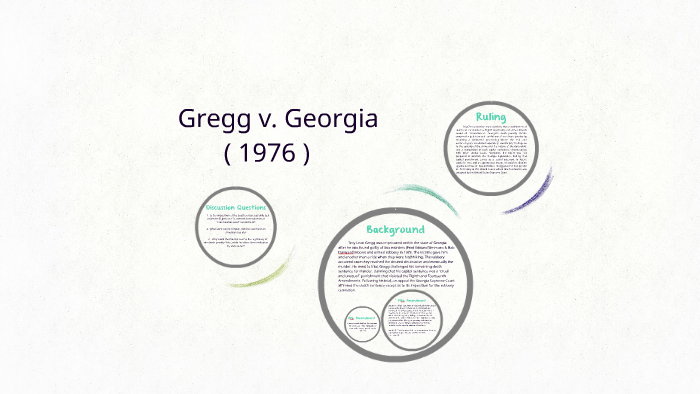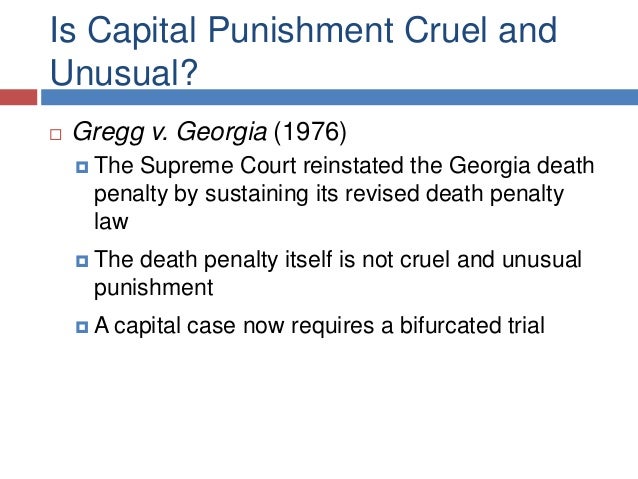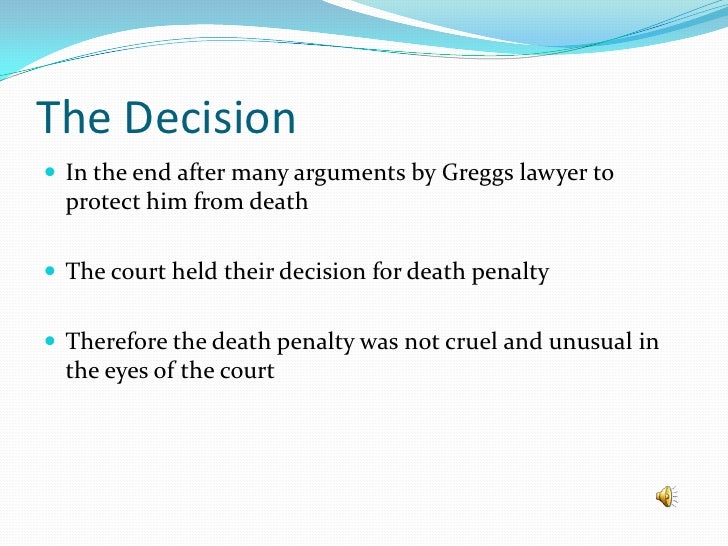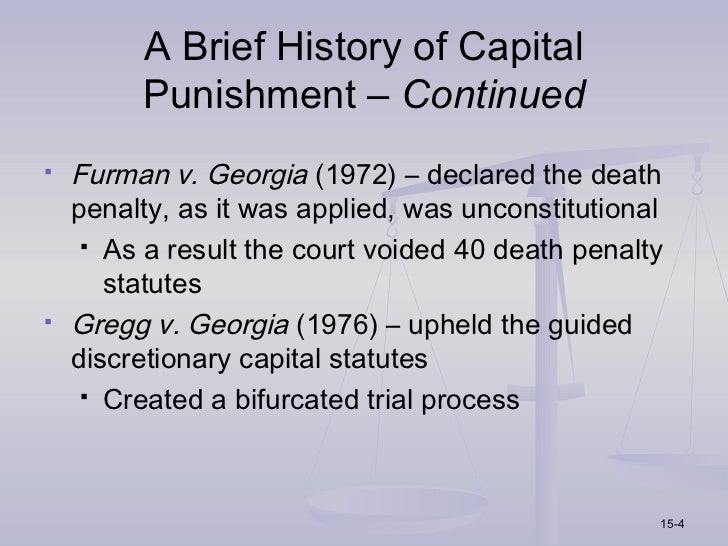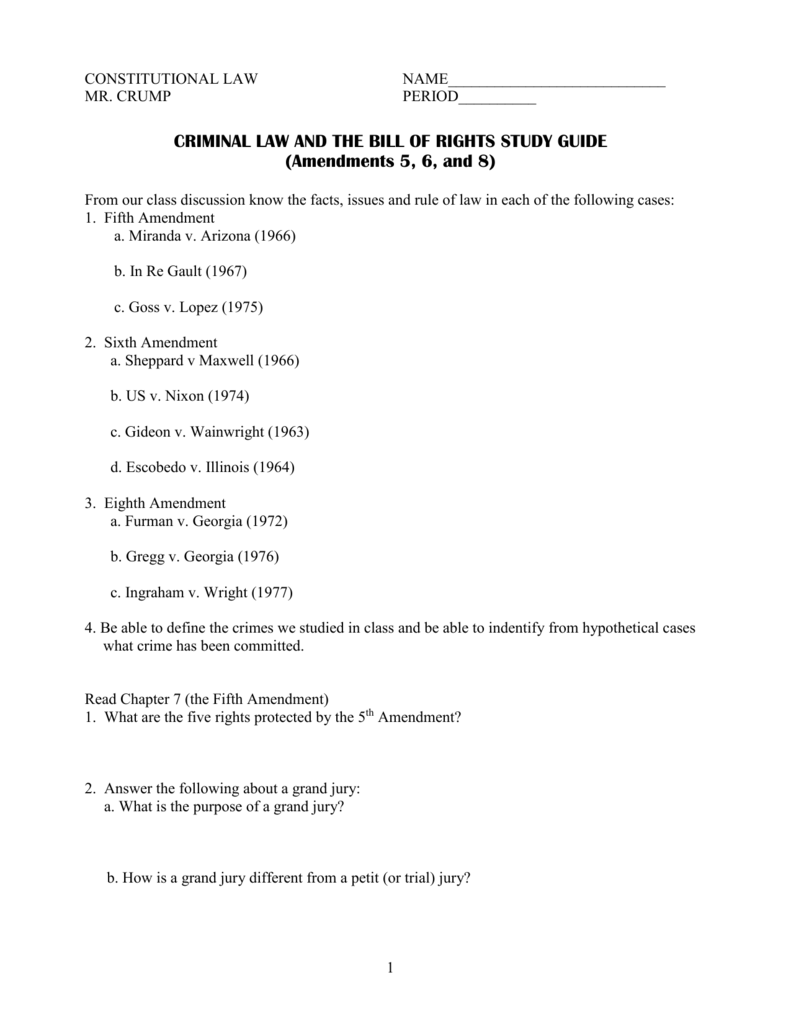Gregg V Georgia Ruling
2d 859 1976 brief fact summary.

Gregg v georgia ruling. Georgia proffitt vflorida jurek vtexas woodson vnorth carolina and roberts vlouisiana 428 us. In 1972 in furman v. In the wake of the supreme courts decision in the furman case which held a death penalty statute to be.
At the trial stage of georgias bifurcated procedure the jury found petitioner guilty of two counts of armed robbery and two counts of. Georgia the courts made a major shift in thinking about the death penalty ruling that its application outside of narrow and specific circumstances. 2726 33 led2d 346 1972 retains the death penalty for six categories of crime.
Petitioner was charged with committing armed robbery and murder on the basis of evidence that he had killed and robbed two men. March 31 1976 decided. Argued march 31 1976.
Georgia 1976 the court reaffirmed. 153 1976 gregg v. Murder4 kidnaping for.
Certiorari to the supreme court of georgia syllabus. 153 1976 reaffirmed the united states supreme courts acceptance of the use of the death penalty in the united states upholding in particular the death sentence imposed on troy leon greggreferred to by a leading scholar as the july 2 cases and elsewhere referred to by the. Decided july 2 1976.
Petitioner was charged with committing armed robbery and murder on the basis of evidence that he had killed and robbed two men. Supreme courts ruling in gregg vgeorgia which involved a prosecution for a double murder committed in the course of a robberyrejected the legal argument that capital punishment in and of itself constituted cruel and unusual punishment and thus violated the eighth amendment of the us. Before considering the issues presented it is necessary to understand the georgia statutory scheme for the imposition of the death penalty3 the georgia statute as amended after our decision in furman v.
Georgia 1976 summary in 1972 the supreme court ruled that the death penalty systems then in place were unconstitutional violations of the eighth amendments prohibition on cruel and unusual punishments. 238 1972 was a criminal case in which the united states supreme court invalidated all death penalty schemes in the united states in a 54 decision with each member of the majority writing a separate opinion. Georgia as a landmark case expanded its prior decision in furman where the court held the death penalty was unconstitutional.
Four years later in gregg v. 4678 following furman in order to reinstate the death penalty states had to at least remove arbitrary and discriminatory effects in order to satisfy. This case established that the death penalty is not per se unconstitutional and state legislatures should draft statutes which impose the death penalty to guide the jury in reaching their decision.






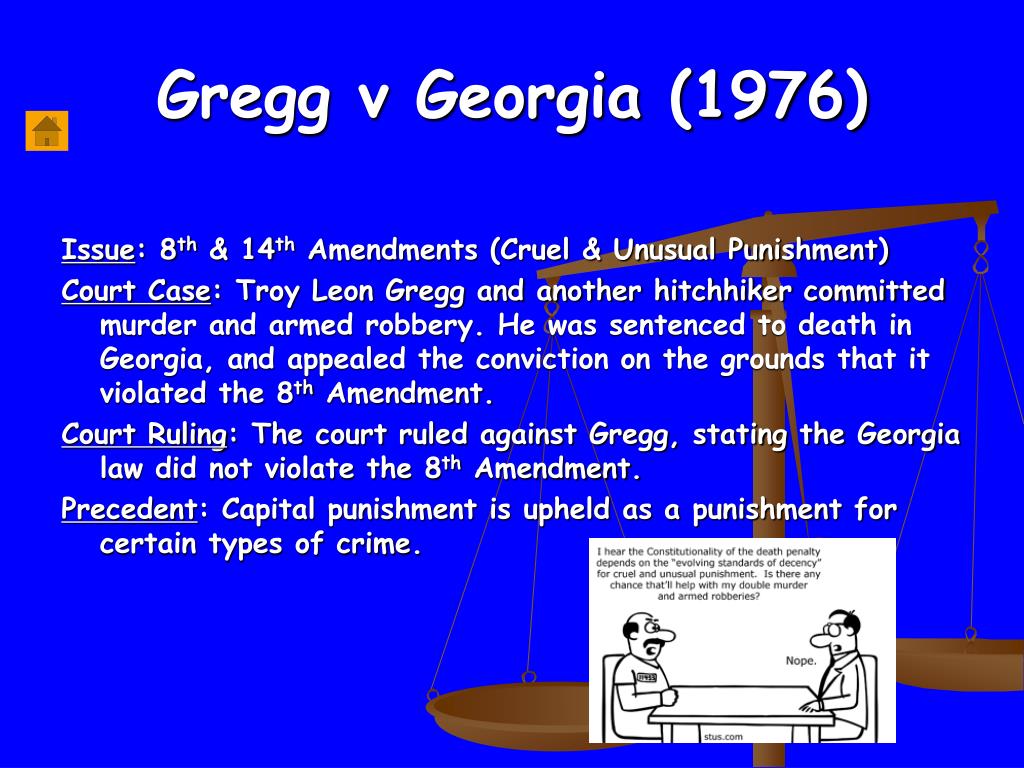



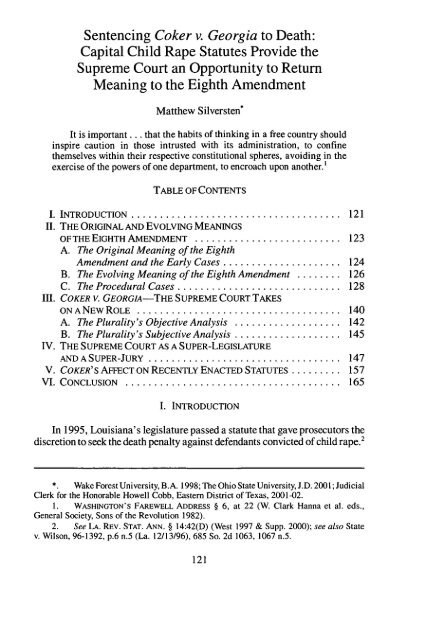
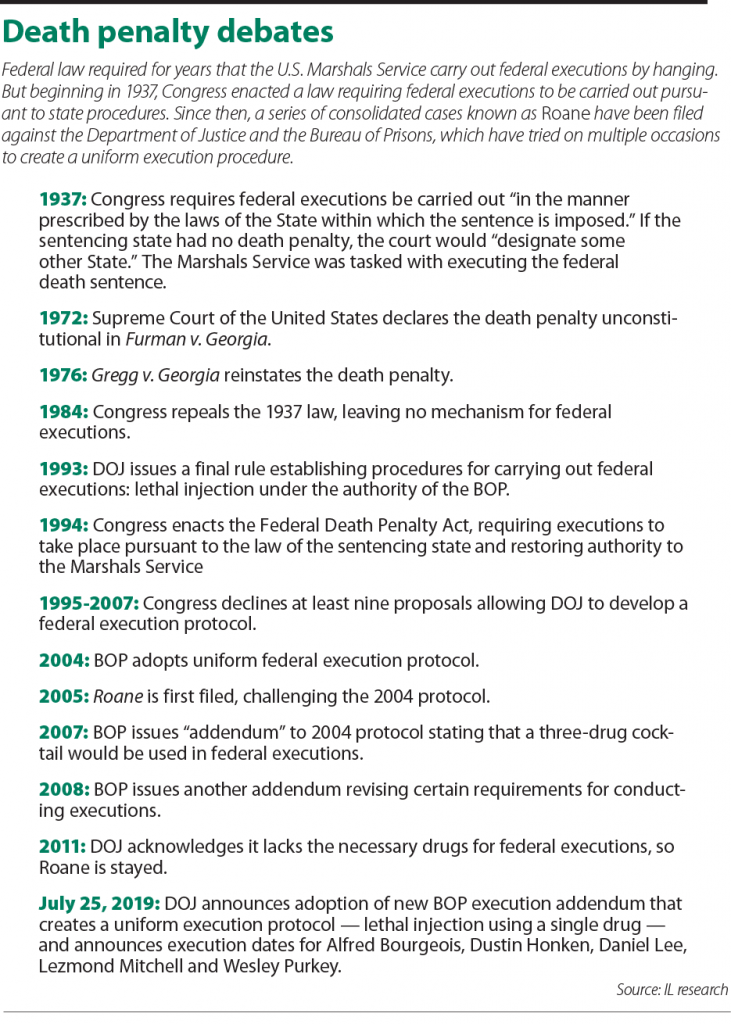
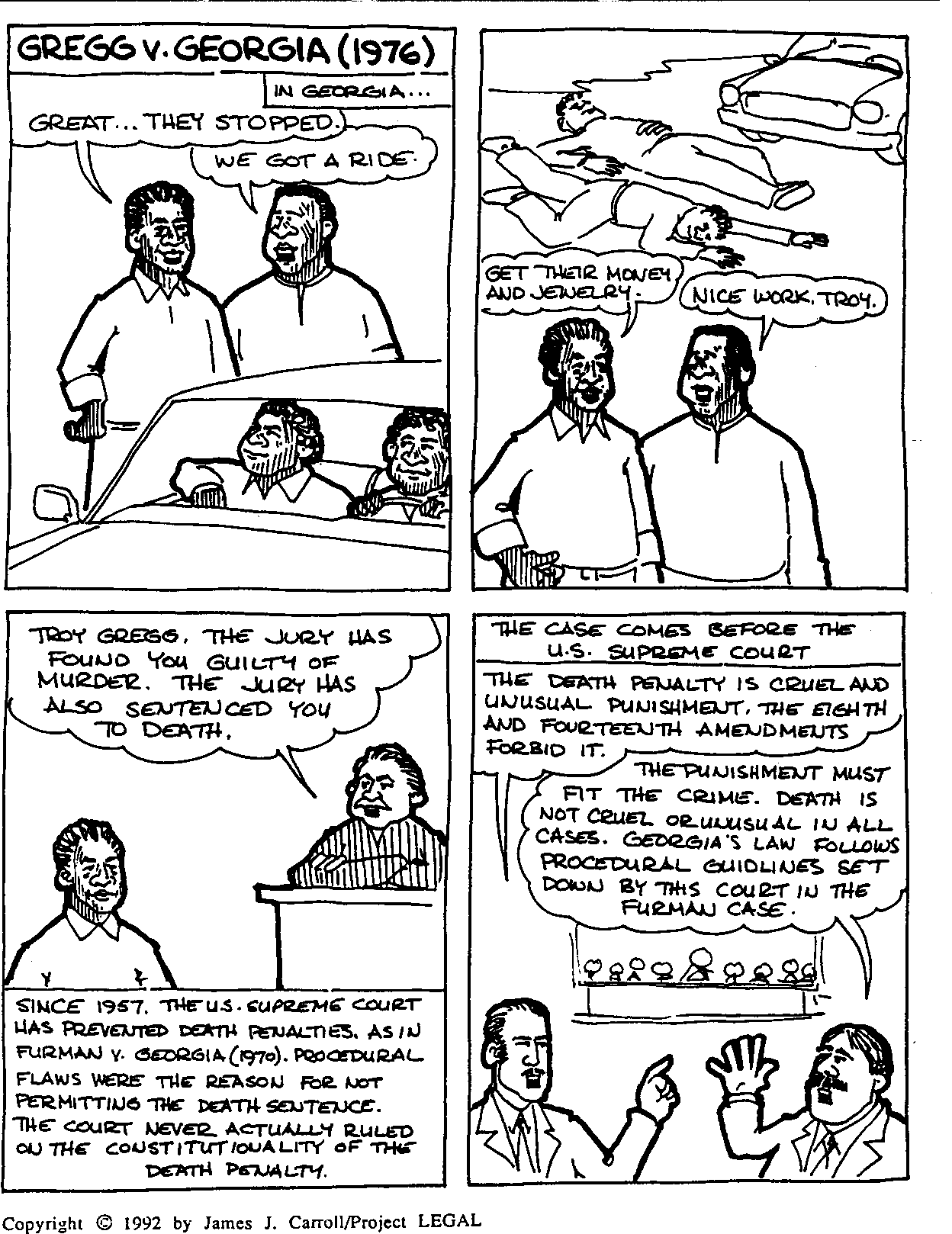

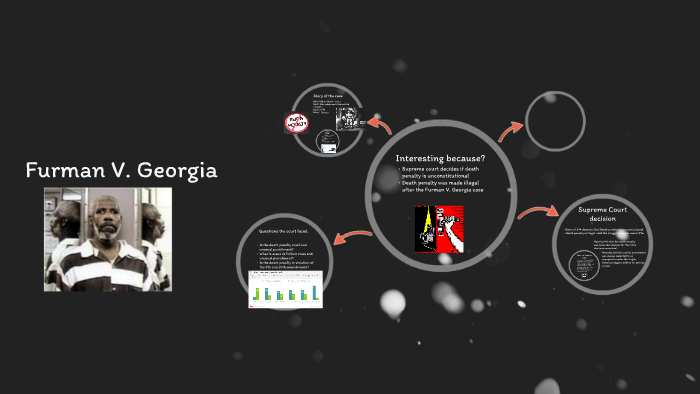








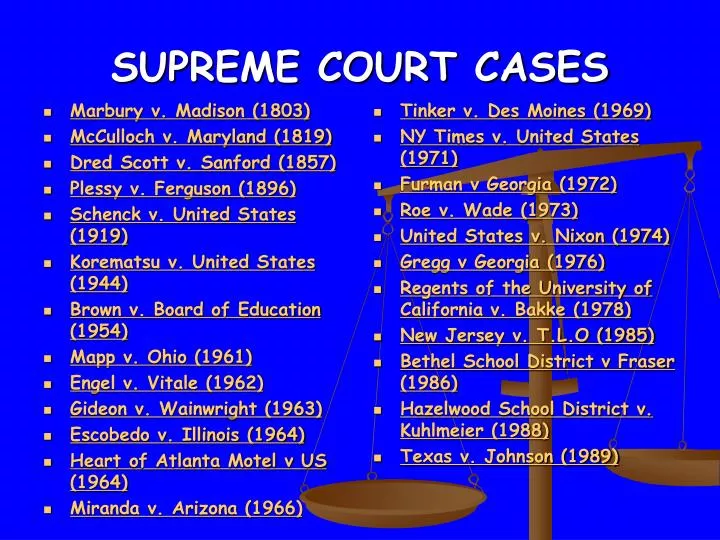



%20The%20Facts%20and%20the%20Ruling.jpg)





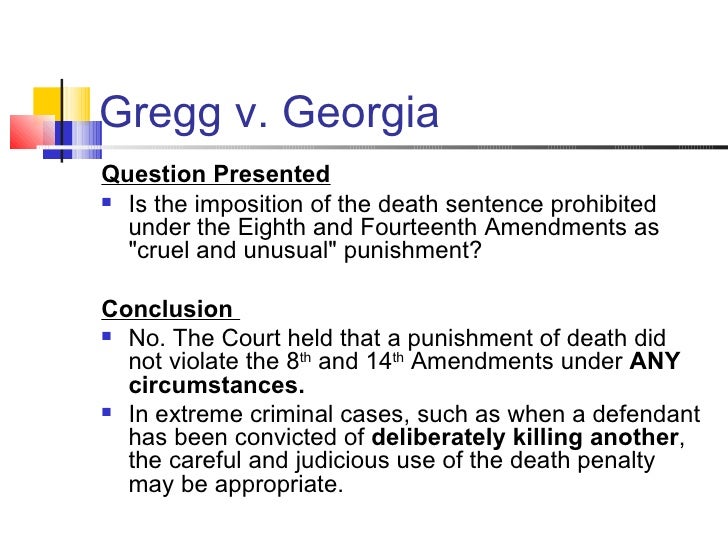

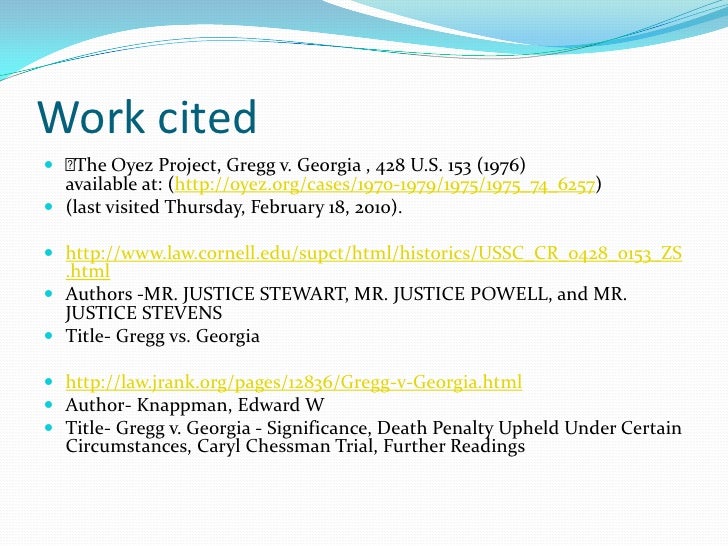
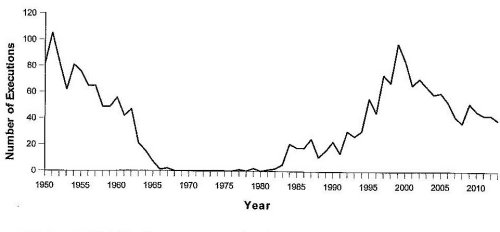

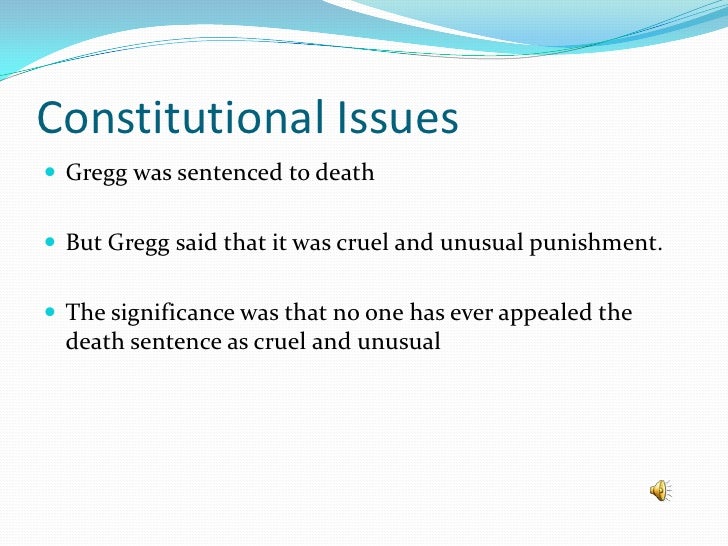

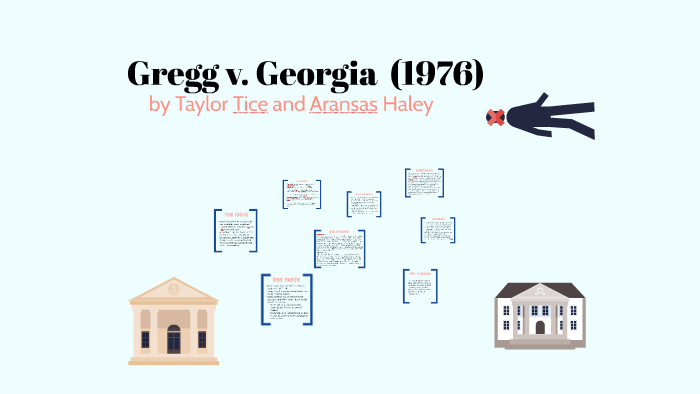
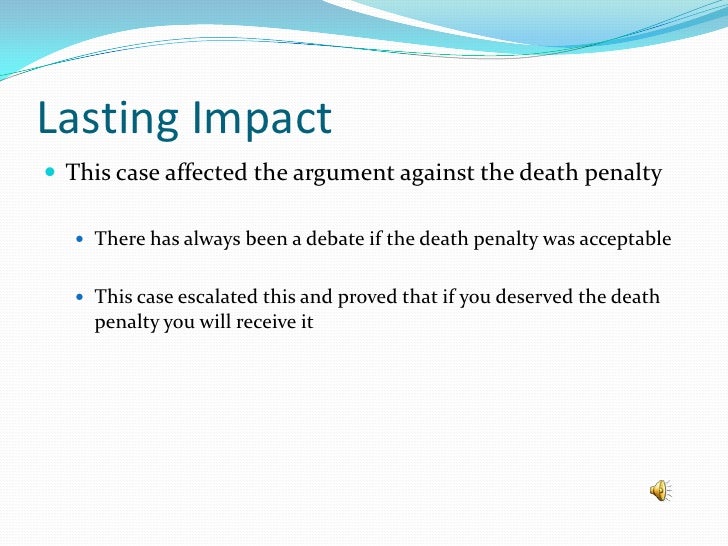
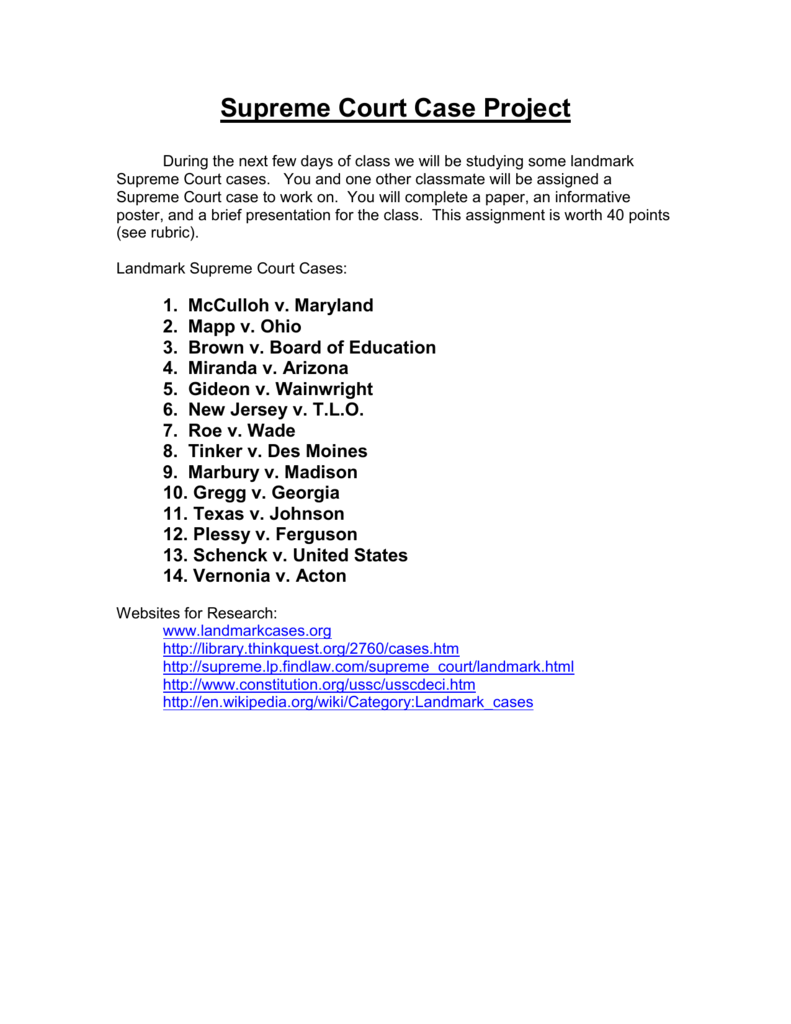


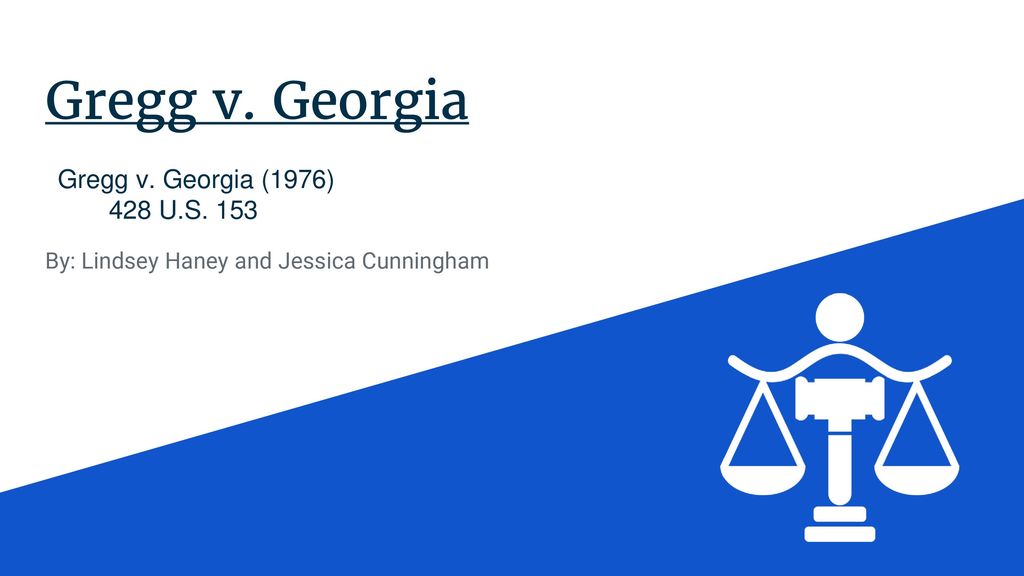










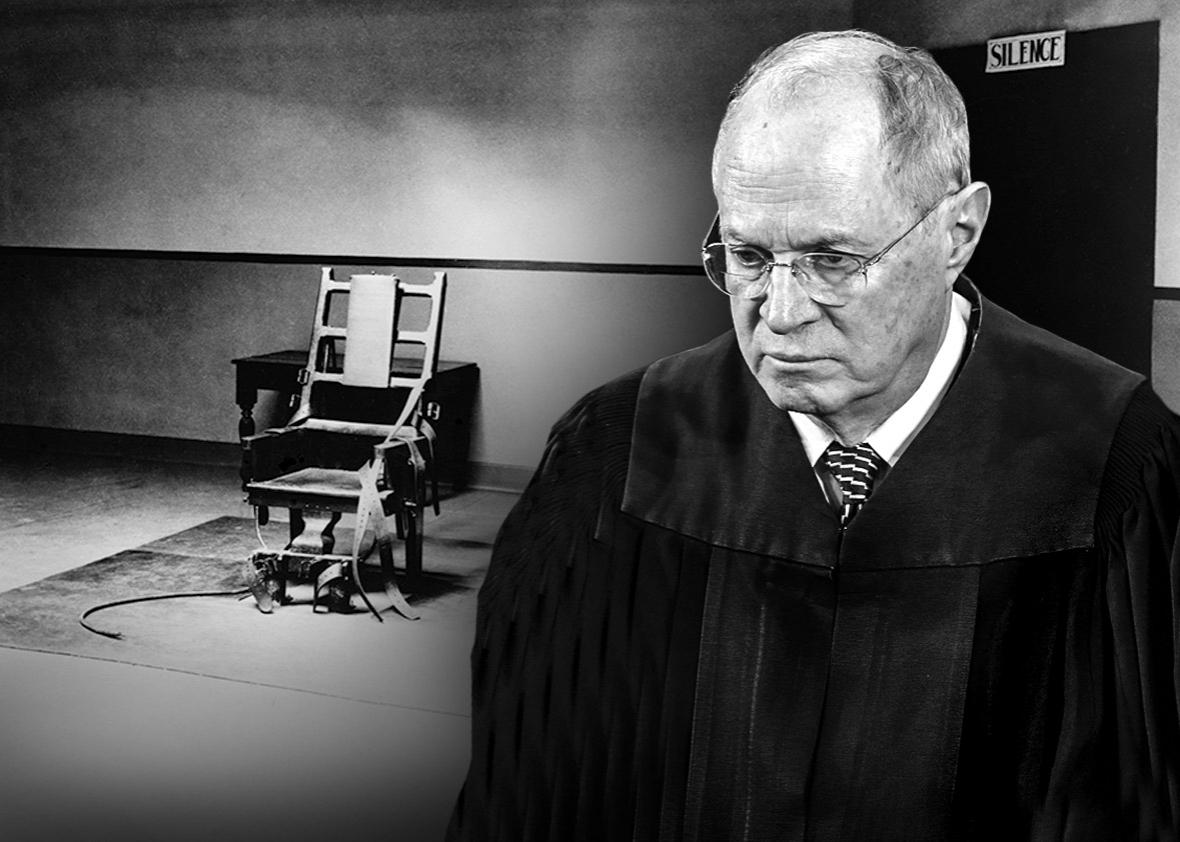

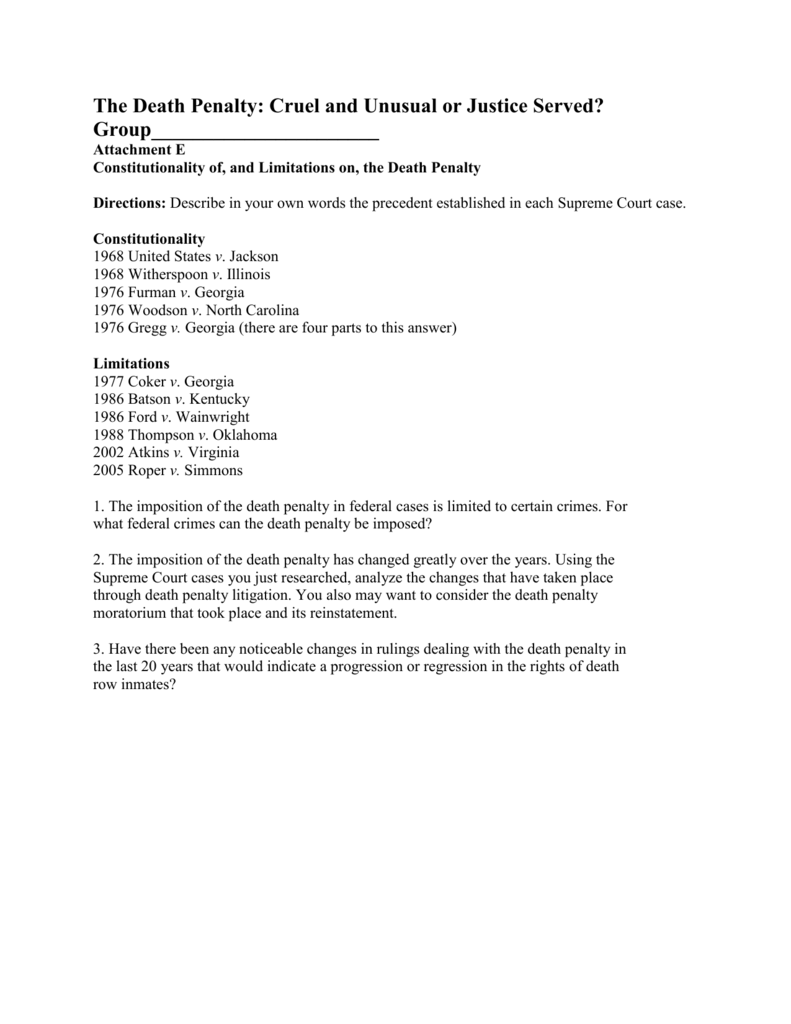


/GettyImages-166116428-5c76221646e0fb0001a5ef68.jpg)
